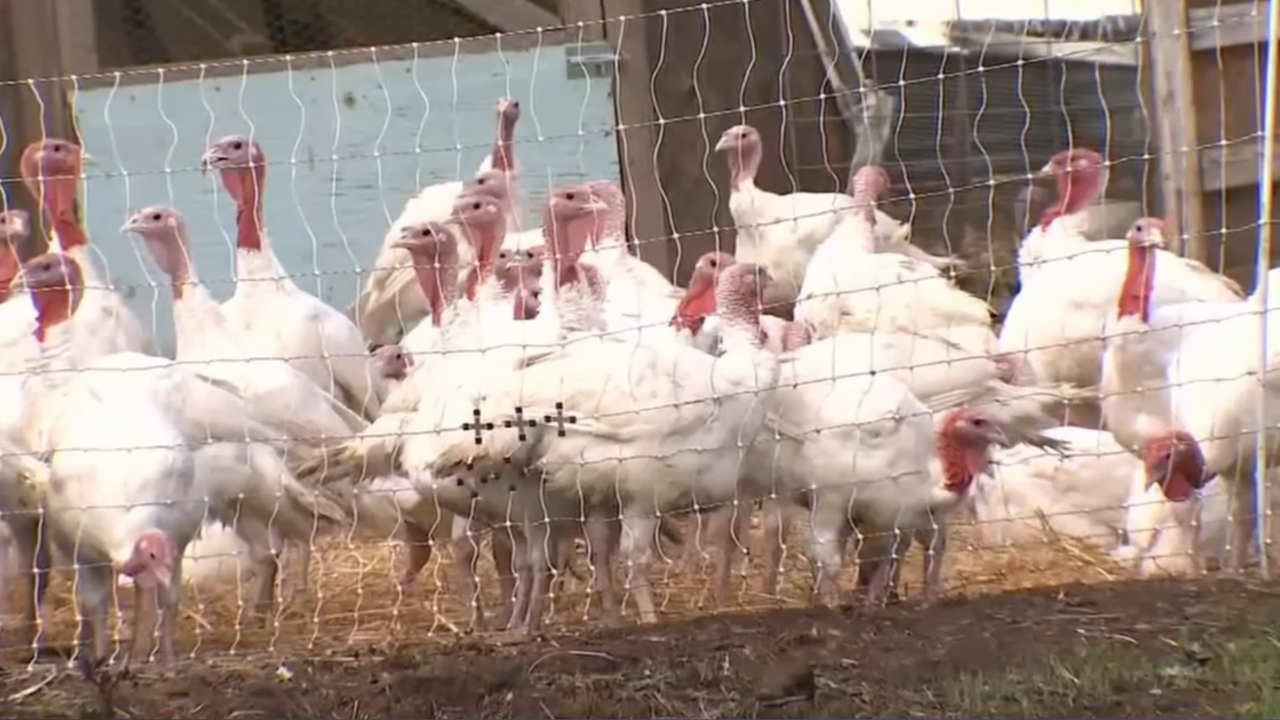SANPETE COUNTY, Utah — It's that time of the year again when the poultry producers are on high alert for avian influenza outbreaks.
On Friday, the Utah Department of Agriculture and Food confirmed highly pathogenic avian influenza (HPAI) in a commercial turkey facility in Sanpete County.
“Oh, these outbreaks are devastating to the producer,” said Spencer Gibbons, CEO of the Utah Farm Bureau.
Gibbons explained how the Avian Flu outbreaks have been a problem for the last few years.
“Spread through commingling of bird populations so, that’s always a challenge for producers to try to completely eliminate but we are coming into that time of year where we have seen it since about 2022,” said Gibbons.
As the CEO of Utah Farm Bureau, he knows the damage that this disease leaves behind.
"It can be a debating economic loss for the producers,” said Gibbons.
Utah State Veterinarian, Dr. Amanda Price explained how over the last few years, many producers in Utah have been hit.
“Devastating to that. It’s also been financially, it’s had. A big financial impact on some of the other producers, early marketing of their birds,” said Dr. Amanda Price, Utah State Veterinarian.
"There’s about 35,000 on that facility. We unfortunately have to depopulate them to prevent the spread of disease there’s a lot of commercial poultry operations in that area,” said Price.
Price explained how producers are tired of this problem.
“This is the fourth year, fourth fall that we’ve had it come through our turkey facilities. So, we’ve depopulated since 2022 when the outbreak first started, we’ve depopulated over four million birds here in the state,” said Price.
She said just in the last three weeks, other states are seeing it too: "North Dakota, South Dakota, Minnesota,” said Price.
She explained that those who have backyard flocks should keep a close eye on them.
"Need to do what they can to keep those wild ducks away from their birds to help protect them. There’s a risk we’re going to see more of this throughout the state,” said Price.
While other birds are a concern, people are not. "So, it’s not really a threat to the general public. As long as people cook their poultry and their eggs thoroughly there’s no risk there,” said Price.
Gibbons shared how the last few years have been tough on Utah’s ranchers and farmers, but they always pull through.
“Despite these types of setbacks, farmers are continuing to do the thing that they do best. And that’s raising food for their families and for all of Utah's families,” said Gibbons.




